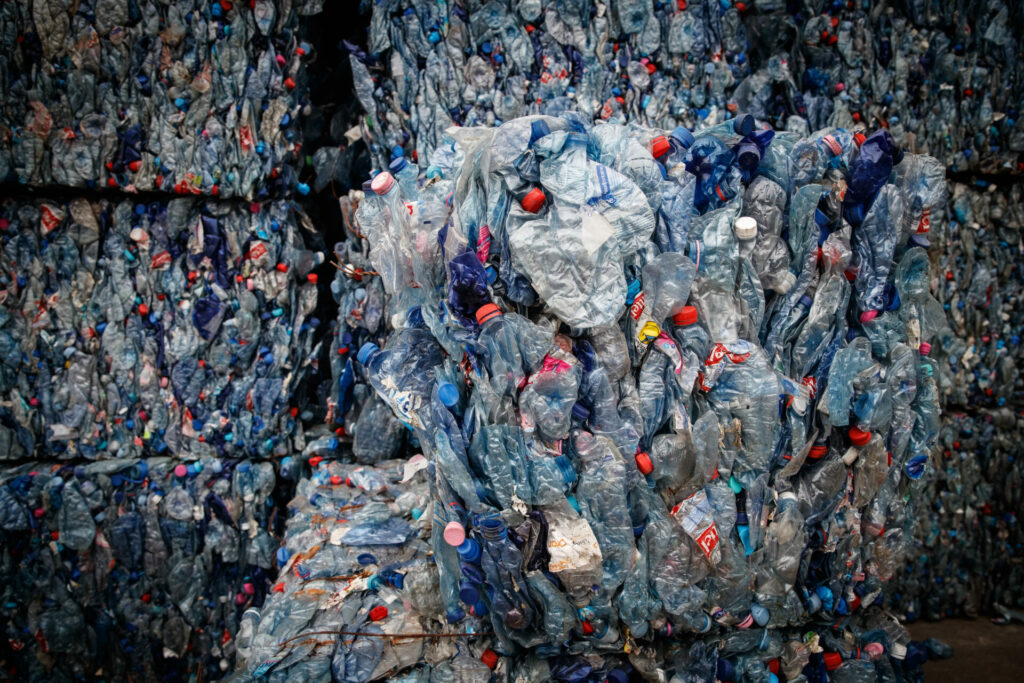Ahead of the winter energy crisis, the European Union must “urgently” cut its plastic production to reduce dependence on Russian oil and gas, a new report co-published by the Centre for International Environmental Law and Break Free From Plastic has concluded.
The report states that it is unfair that consumers are shouldering the brunt of energy reduction while plastic producers are signing new deals for fossil fuel supplies. “Policymakers are leaving untouched the plastics and petrochemicals sector – the single largest driver of the increase in global oil and gas demand,” the report notes.
Plastic production was responsible for nearly 9% of EU gas consumption and 8% of oil consumption in 2020. To put this in perspective, this is about as much as the final gas consumption in the Netherlands or final oil consumption in Italy.
Single-use plastics, such as those generally used in packaging, are some of the most fossil fuel-intensive and are in desperate need of being phased out. They are also some of the worst for the environment.
EU wrapped in plastic
Despite growing opposition and legislation across Europe to cut down on superfluous plastic packaging, replacing it with biodegradable or reusable containers, it still accounts for 40% of plastic products in the EU. This is equivalent to Hungary’s final gas and Sweden’s final oil consumption in 2020.
“Plastics and petrochemicals are the largest industrial oil, gas, and electricity users in the EU, with nearly 40% of that energy going towards producing plastic packaging alone… While families and small businesses are facing skyrocketing energy bills, the petrochemicals industry is wasting scarce resources to produce unnecessary sing-use plastic, fuelling the EU energy crisis,” said Delphine Lévi Alvarès, European Coordinator of the Break Free From Plastic movement.
As the EU attempts to reduce dependence on Russian fossil fuels, experts argue that the petrochemical industry should take more steps to make its practices more environmentally friendly and less carbon-intensive. So far, the industry has been excluded from the EU’s “Save Gas for a Safer Winter Plans.”
“Russia’s invasion of Ukraine lays bare the danger of global dependence on fossil fuels. Expecting individual consumer action is an inadequate response to the scale of the crisis at hand,” said Lili Fuhr, Deputy Director of CIEL’s Climate and Energy Program.
Europe's worst offenders
The report concludes that seven of Europe’s largest economies, including Belgium, are responsible for 75% of oil and 81% of final gas consumption, as well as 77% of all plastic packaging waste.
The plastics industry plans to double its gas and oil-based production over the next 20 years, which the report states is “incompatible” with the Green Deal and the EU’s commitment to keep global warming under 1.5℃.
“EU leaders must stop their neo-colonialist hunt for new sources of fossil fuels and instead confront the problem head-on by immediately reducing the production of plastic, starting with unnecessary single-use plastic packaging to save gas,” Fuhr said.
Related News
- Saturday is World Cleanup Day: Millions worldwide take action against littering
- Belgians produced 68 million tonnes of waste in 2020
The report offers concrete policy recommendations to the EU, notably to reduce fossil fuel use in the industry through “prevention and reuse” policies. Experts want to see greater regional action and increased ambition on passing the responsibility for energy saving onto producers during future discussions on treaties.
“With a 50% reduction of plastic packaging and a 90% rate of recycling we could save the equivalent of the Czech Republic’s annual oil and gas consumption. This is a huge opportunity for the EU to address the energy, climate, and plastic pollution crisis at once. It’s time for the EU to demonstrate real leadership. For a safer winter, plastic has to go,” Alvarès concluded.

